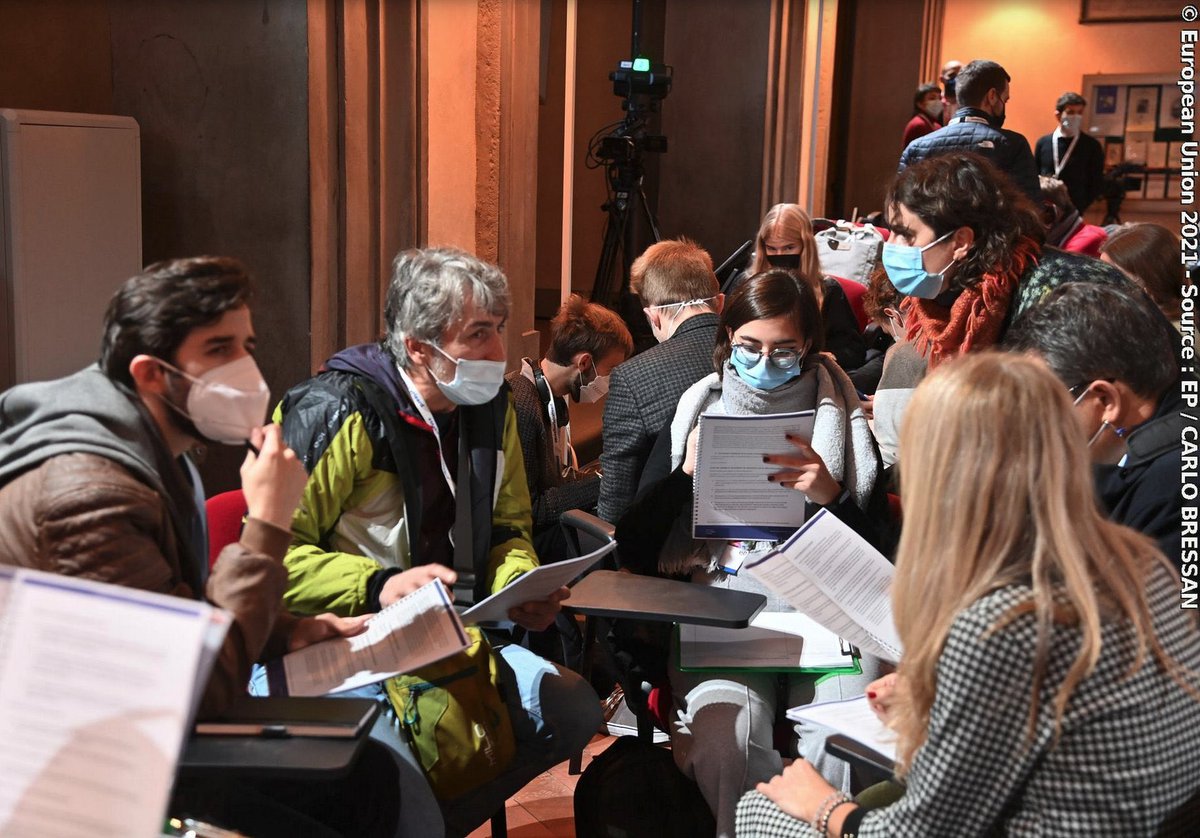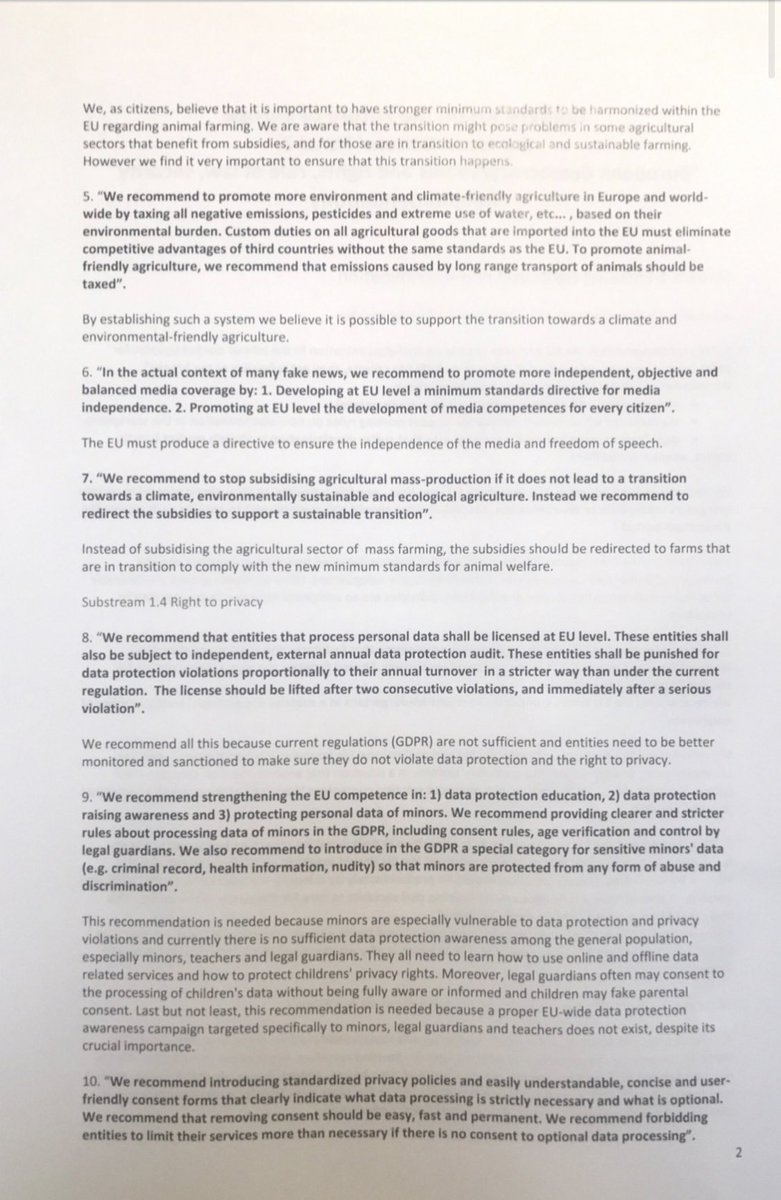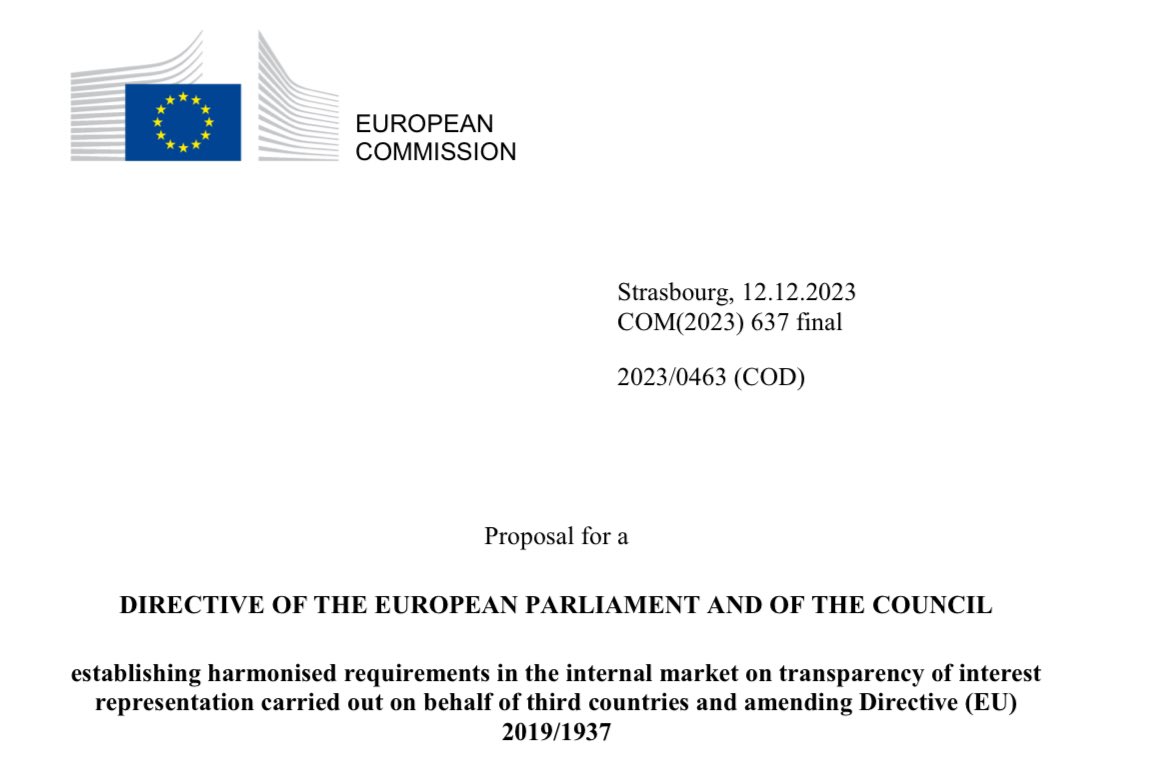After 3 week-ends of deliberation, the first citizens' recommendations for EU leaders were approved over the weekend.
Their contents are as important as the PROCESS that delivered them.
The @EUI_EU final panel revealed a humbling, collective learning experience. A 🧵 #CoFoE
Their contents are as important as the PROCESS that delivered them.
The @EUI_EU final panel revealed a humbling, collective learning experience. A 🧵 #CoFoE

Citizens, mostly not used to transnational exposure & live interpretation (!), played the game by engaging in debates generally considered a prerogative of political elites/pundits.
Media pluralism, rule of law, conditionality of EU funding, citizen education. Wow.
Media pluralism, rule of law, conditionality of EU funding, citizen education. Wow.

Citizens produced 42 recommendations – from simplifying the names of EU institutions to guaranteeing media pluralism and Europeanizing politics, with one common thread:
to enable emergence of a pan-EU public sphere to enhance EU accountability



to enable emergence of a pan-EU public sphere to enhance EU accountability




No surprise, being freshly exposed to the benefits of transnational interactions, citizens almost unanimously proposed the establishment of a permanent mechanism of citizen assemblies at the EU level. Most likely tangible #cofoe outcome IMHO 

While the quality of the facilitation varied across groups, it is THE citizens who generated the ideas and shape them up.
Expert input deliberately played a minor, indirect role, not to chill nor kill the deliberation
To be further discussed
Expert input deliberately played a minor, indirect role, not to chill nor kill the deliberation
To be further discussed

Most recommendations may appear fuzzy to an expert audience, but they are the product of genuine citizen deliberation and clear enough to be understood by their political addressees #cofoe #EUCO
On a negative note, the single recommendation aimed at amplifying the voices of marginalised communities failed to reach the threshold of 70% of support. Difficult not to ascribe this to the lack of representation of these communities in the citizens’ panel @takeover_europe 

This citizen panel on democracy has now concluded its work, but – as other 3 citizens panels prepare their recommendations (by mid-Feb?) – its 20 citizen ambassadors prepare their presentation to #COFOE plenary. Deliberation continues this time with the politicians in the room.
Ultimately, this first of the last round of citizen panels has set an important methodological precedent for those to come, and more importantly sent out a powerful message:
deliberation doesn’t require expertise (provided facilitation works) #cofoe @iacocoba
deliberation doesn’t require expertise (provided facilitation works) #cofoe @iacocoba
https://twitter.com/iacocoba/status/1470017558724104194
Much more to be studied / analyses in the next few days/weeks as the reccs will be published.
For a preliminary analysis forthcoming in European Law Journal papers.ssrn.com/sol3/papers.cf… #cofoe
For a preliminary analysis forthcoming in European Law Journal papers.ssrn.com/sol3/papers.cf… #cofoe
• • •
Missing some Tweet in this thread? You can try to
force a refresh












